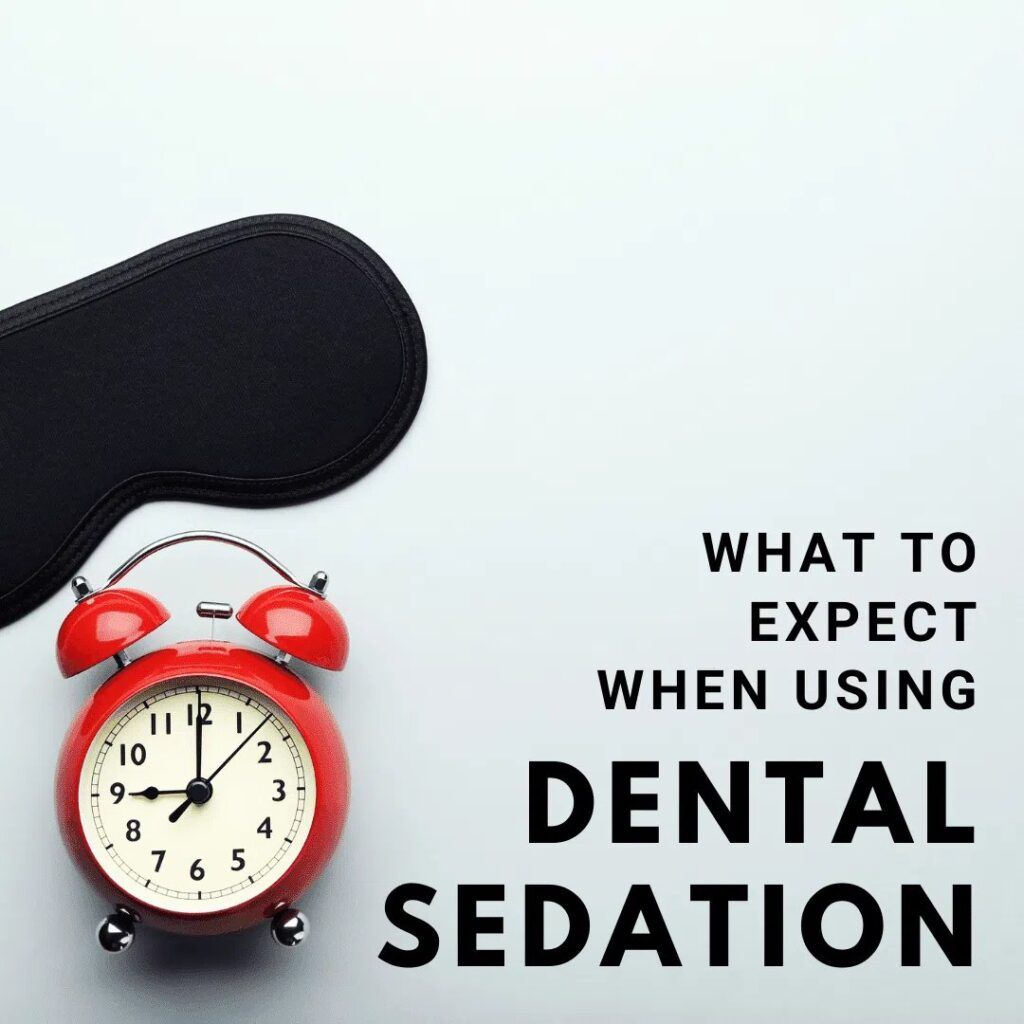Nowadays, your implant dentist is just as concerned about your comfort level during your procedure as they are with the final results of your smile. This is why so many dentists now offer various dental sedation options for their patients, especially for procedures like dental implants. If you are planning to have dental implants placed in the near future, then you can likely expect to undergo some level of sedation and knowing what to expect can help put your mind at ease.
First and foremost, dental sedation has become increasingly common in the last few years and is a safe method to relax you while in the dentist’s chair. Depending on the treatment required and the anxiety level of the patient, there are different levels of dental sedation available for dentists to offer their patients. Your expectations for sedation will vary based on the level sedation you are receiving. At a glance, here are some things to expect when using dental sedation:
Before Sedation

Before undergoing dental implant surgery with sedation, there are a few things that you will need to do in order to prepare. For starters, you will need to avoid smoking for six weeks before surgery and alcohol for 72 hours before surgery. Your implant dentist may also require pre-operative testing to ensure that you are healthy enough to receive dental sedation. The night before your surgery you will need to stop eating and drinking after midnight. If you are using oral sedation, then your dentist will likely also give you some medication to take the night before and morning of your surgery. This also means that you will need to have someone present over the age of 18 to bring you to your appointment and drive you home after.
During Sedation
While under oral or IV sedation you can expect to feel drowsy and you may even fall into a light sleep during the procedure. If your sedation level is moderate, you will be able to awaken easily and respond to questions if needed. In some cases, you may be placed into a deeper level of sedation that can render you entirely unconscious. With both moderate and deep sedation, many patients have little to no memory of the procedure.
After Sedation
Once your procedure is over, you will remain in your dentist’s office temporarily for observation. During this time, the effects of sedation will wear off. The length of time it takes for the effects to completely wear off depends on certain factors such as the level of sedation and how fast your body metabolizes it. As a general rule, you should not drive or make important decisions for the first 24 hours following sedation. Additionally, you should have help walking and going up and down stains since sedation can cause problems with your balance. If you have undergone dental sedation, you will need to have another adult present for the first 24 hours to monitor you. Additionally, you will want to drink plenty of water to avoid the “hangover” associated with sedation medications.

